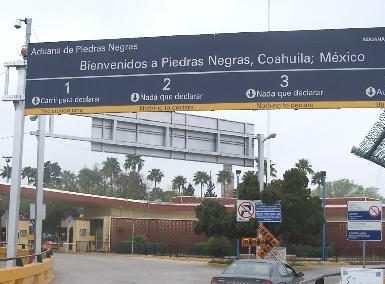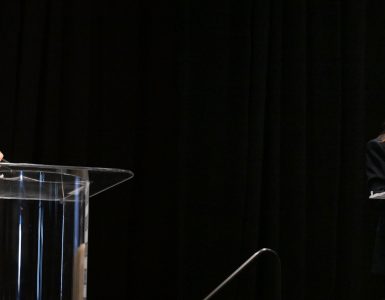Large and small companies that rely on foreign workers are growing increasingly concerned about President Trump’s rhetoric and actions on immigration.
As a global workforce shortage widens, an aging America needs to step up to compete, according to economists and business leaders. CompeteAmerica, a pro-immigration coalition of employers whose members include Amazon, Google, and Microsoft, wrote to Homeland Security last fall saying that Trump’s immigration policies were bad for business and their employees. Business Roundtable, an association of top US CEOs that includes Amazon’s Jeff Bezos, Apple’s Tim Cook, and IBM’s Ginni Rometty, expressed a similar sentiment in a letter to Homeland Security last year.
Streamlined immigration policies for foreign workers must be enacted. America has too much to lose.
A recent study by global organizational consulting firm Korn Ferry found that by 2030 there will be a global human talent shortage of more than 85 million people. The report, “Future of Work: The Global Talent Crunch,” studied labor data in 20 countries. It determined that if left unchecked, the talent shortage could result in about $8.5 trillion in unrealized annual revenues. The deficit of highly skilled workers is expected to exceed 6.5 million people over the same period.
Failing to address workers misguided
Countries like Canada with more open immigration policies are benefiting. The study reveals that highly skilled foreign workers are opting more and more to head for the Great White North instead of the good ol’ U.S.A.
But it goes even further. As the administration pursues more actions to reduce illegal and legal immigrants, America’s future is at stake, business leaders and economists warn.
“By 2035, the demographers tell us there’ll be more people over age 65 than children under 18. That’s never before happened in the country’s history. We’re going to need workers, and we’re going to need them not only to staff our businesses but to pay taxes to support those elderly and to take care of them,” David Wessel, director of the Brookings Institution’s Hutchins Center on Fiscal & Monetary Policy told NPR Monday.
“So, basically, if we can’t grow our own, we’re going to have to import people. I mean, look at the Social Security system. The actuaries at Social Security tell us that the more immigrants we have — working-age immigrants, that is — the more payroll taxes going into the system, and the longer we’ll be able to sustain the Social Security system.”
American industries feeling squeezed
In America, there are already significant worker shortages in construction, IT, manufacturing, restaurants and trucking.
Meanwhile, almost all industries report negative impacts from the administration’s immigration policies, according to 2019 Immigration Trends Report by Envoy Global, a global technology immigration services firm that assists companies in navigating the immigration system.
Envoy surveyed more than 400 U.S. hiring professionals from big and small companies with experience hiring foreign employees last year.
According to the survey of employers:
- Ninety-seven percent said the most important measure needed for immigration reform is a quicker processing time for foreign workers
- Thirty-one percent said they’ve had to increase staff to compensate for the challenges of the current system
- Thirty percent said the current process delays projects
- Only 12 percent said the current immigration system has no impact on their hiring and retention strategies
Canada becoming tech hub with foreign workers
Another startling result of the study shows that while American companies do plan to hire more H-1B temporary visa candidates this year, they also are moving jobs to Canada to avoid the complex and lengthy work visa programs in the U.S.
Sixty-three percent stated that Canadian policies are “more favorable” than U.S. programs.
Some 38 percent say their company is “considering” Canada as an expansion destination for new staffers, while an additional 21 percent say they’ve already established at least one office in that country. The report states that Toronto added more tech jobs than Seattle, Washington D.C., and the Bay Area combined last year.
It’s no surprise that Canada has become a major tech hub. The immigration minister announced last year that Canada would increase the number of immigrants it accepts each year by 40,000, for a total 350,000 in 2021.
Its Global Skills Strategy program, Canada’s equivalent to the U.S. H-1B temporary work visa, expedites the immigration process for high-skilled workers to two weeks or less. It can take up to six months in the U.S., employers report.
Trump getting tougher
As the crisis on the border continues, the Trump administration is proposing several new actions including cracking down on overstay rates of H-B1 and H-B2 temporary visas, tightening of student and investor visas, and preventing immigrants from coming or becoming citizens if they are likely to use publicly funded benefits.
Another shakeup of several key staff members at the Department of Homeland Security (DHS) does not bode well for streamlining immigration policies.
A few weeks ago, Secretary Kirstjen Nielsen, whose immigration views had been in line with Trump’s, resigned after meeting with the President. Two days later, Trump announced he wants to go in a “tougher” direction in his nomination of a director for the Immigration and Customs Enforcement (ICE) agency that oversees DHS.
A new person will be the fourth to helm DHS under Trump.
There’s a better way
Businesses that rely on immigrant employees have called on Congress to keep American borders safe but retain the nation’s tradition of open arm policies for foreigners who want to work hard to achieve their dreams.
Industry leaders including Google, Amazon, Facebook and Microsoft, have written to Congress stating that the trend to clamp down on immigration is a threat to the nation’s economy.
The U.S. Chamber of Commerce is working to get streamlined immigration policies passed to expand the labor force. Foreign workers boost the economy, create jobs, and spur innovation and entrepreneurship, Chamber President and CEO Thomas Donohue said.
“America has the lowest level of unemployment in 65 years. Simply stated, we’re out of people,” Donohue told executives and politicians at the U.S.-Mexico Summit in Merida Mexico April 12.
Congress must pass “an effective immigration bill as soon as possible,” he said.
















Add comment